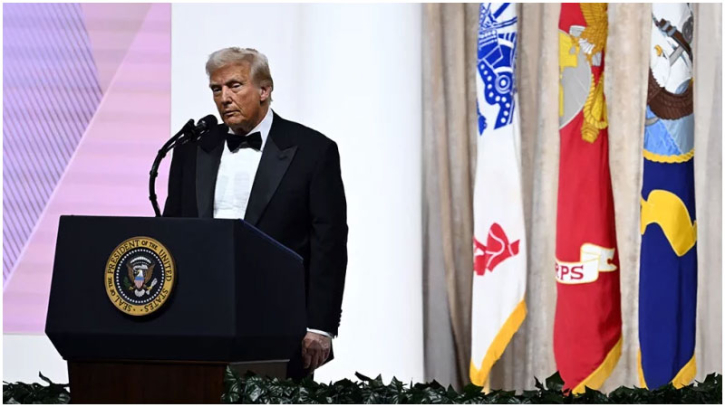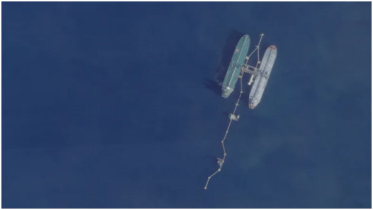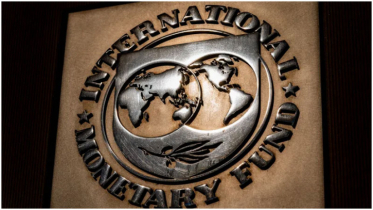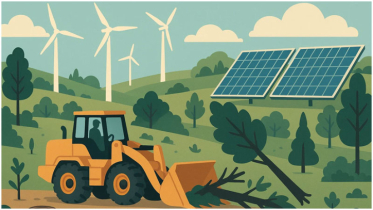How Bangladesh may be affected by Trump's policies

Bangladesh may be affected by Trump’s policies
Actions taken by US presidents draw global attention, as any decision by the US has far-reaching impacts. This is particularly true for Donald Trump – who took his oath of office as the 47th president of the United States on Monday – whose decisions are highly unpredictable.
Experts believe that like his first term (2017–2020), Trump will continue making unilateral decisions during his second term. They also feel US policies concerning Bangladesh may undergo significant changes.
Analysts predict potential shifts in areas such as climate change, civil rights and development assistance, and these policy changes in Washington could influence decision-making in Bangladesh as well.
Climate change
“Donald Trump is a businessman. Naturally, his business mindset leads him to act differently from professional politicians,” remarked a former diplomat, on condition of anonymity.
They said Trump had already made his stance on several issues clear. “For instance, Trump does not believe in climate change, which led the US to withdraw from the Paris Agreement during his first term.”
Notably, repeating the action, the president immediately withdrew the United States from the Paris climate accord on the first day of his new term.
For Bangladesh, climate change is a matter of survival and a critical issue.
If the world’s most powerful nation continued to ignore the importance of combating climate change, countries like Bangladesh could face major setbacks, the former diplomat said.
“During Trump’s first term, Bangladesh faced similar challenges. The country must prepare to tackle such shocks again,” they added.
Development assistance
The US provides approximately $200 million annually to Bangladesh in development assistance, primarily allocated to sectors such as health, governance and social development.
Based on Trump’s approach in his previous term, it is anticipated that he may attempt to cut such expenditures.
Another former diplomat said Trump’s business-oriented mindset might lead him to focus on transactional relationships in international dealings.
They noted that US development assistance was generally not conditional, adding: “The amount of US funding for development assistance may decrease in the coming days. Additionally, the funds allocated by the United States for the Rohingya population could also decline.”
Civil rights
Under Democratic administrations, the US typically prioritizes issues like democracy, good governance and freedom of expression. During the Republican Trump’s previous term, these issues received relatively little attention, as human rights were not a key focus of his administration.
A third diplomat told this correspondent that Republicans generally placed less emphasis on civil rights compared to Democrats. “For Trump, these issues hold even less importance.”
New ambassador
Former US ambassador Peter Haas left Dhaka in early 2024, and the US announced David Meale, then-deputy chief of mission in China, as the new ambassador to Bangladesh in May.
However, with the change in US leadership, Meale’s appointment to Dhaka was reconsidered.
A diplomatic source in Bangladesh confirmed that Dhaka had been informed about the decision to appoint a new ambassador instead of David Meale.
As a temporary measure, the US recently sent Tracey Ann Jacobson, an experienced diplomat, as acting ambassador to Bangladesh. She assumed her duties in January.
Trade and investment
The prospects for new US investments in Bangladesh and increased bilateral trade appear limited.
A former diplomat said investment required a stable environment, which was currently lacking in Bangladesh due to political unrest and uncertainties surrounding the upcoming election.
“Existing investors are scaling back, while potential investors are adopting a wait-and-see approach. Even after a new government comes into power, prospective investors may observe the situation for some time before making decisions.”
Talking about trade, they said Bangladesh faced capacity constraints.
“Even if export orders from other countries increase, Bangladesh lacks the necessary factories, workforce and infrastructure to fulfil them on time. Therefore, trade growth depends on enhancing Bangladesh’s capacity, maintaining buyer interest from the US and securing purchase orders.”
.png)




